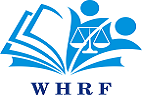BELGIUM 2022
The government response to COVID-19 raised human rights concerns, including in relation to health, asylum-seekers, policing and privacy. The government established extra care centres for survivors of rape and sexual violence. The Wallonia region authorized arms transfers to the Yemen conflict.
Background
A coalition government was formed in October, following elections in May 2019. Almost 20,000 people were estimated to have died from COVID-19. Lockdown measures restricted freedom of movement and other human rights.
Right to health
Older people in care homes
Over half of the deaths from COVID-19 were older people living in care homes. Violations of the residents’ right to health, life and non-discrimination resulted from government failures, including: structural shortcomings; lack of priority attention at the onset of the pandemic; failure to ensure access to hospitals; insufficient provision of personal protective equipment for staff and lack of access to testing.1
Prison conditions
Overcrowding in dilapidated prisons continued, with insufficient access for inmates to basic services, including health care and sanitary facilities. COVID-19 measures – including temporary, early and conditional release – temporarily reduced overcrowding. But other measures limited prisoners’ rights, including by reducing their contact with the outside world.
Excessive use of force
A police chase in April in the capital, Brussels, resulted in the death of a 19-year-old who fled for fear of being fined for breach of COVID-19 restrictions. His scooter collided with a police car.
In August, media released leaked video footage from inside a holding cell at Charleroi Airport, where Slovakian national Jozef Chovanec was detained in February 2018. He suffered a cardiac arrest following a violent altercation with police officers and later died in hospital. The footage shows officers joking and one making a Nazi salute next to the restrained man. A criminal investigation was ongoing.
Gender-based violence
In March, a survey on sexual violence in Belgium was published which had interviewed 2,300 people aged 15 to 85. In it, 20% of female and 14% of male respondents said they had been raped.
In June, the government decided to establish seven extra care centres for survivors of sexual violence; such centres already existed in three cities.
Rights of refugees, asylum-seekers and migrants
In March, due to COVID-19, the authorities closed the office accepting asylum claims. Hundreds of people were temporarily denied access to asylum and consequently to food and housing. The authorities established an online registration system that was inadequate. In over 100 individual cases, the Labour Court ordered the Federal Service for reception of asylum-seekers to ensure access to material assistance.
In September, a government commission tasked with reviewing returns and removal procedures and practices, presented its report to Parliament, which called for increased use of repressive measures, including pre-removal detention and harsher penalties for irregular entry. Civil society organizations criticized the regressive approach and presented an alternative report with human rights-compliant proposals.
Discrimination
“Stop Ethnic Profiling”, a platform launched in June, expressed concern that ethnic profiling by police increased during lockdown.
In July, four local police forces adopted a framework outlining how police should avoid ethnic profiling.
Freedom of assembly
In June, 10,000 people protested against racism and police violence in Brussels. In response to the pandemic, public gatherings were banned, but the authorities tolerated the protest. In several other towns, local authorities banned smaller protests.
Right to privacy
The state response to COVID-19 included the increased collection, retention and aggregation of personal data. Privacy experts and civil society organizations advocated for safeguards to protect the right to privacy, including by ensuring the swift erasure of data allowing identification.
Irresponsible arms transfers
Concerns remained that continued authorization of arms transfers by the Wallonia region to the Saudi-led coalition in Yemen could mean such arms being used to commit or facilitate serious violations of international human rights and humanitarian law. Following legal action by NGOs, the Council of State annulled several such licences.
- Les maisons de repos dans l’angle mort: Les droits humains des personnes âgées pendant la pandémie de COVID-19 en Belgique (in French only) (Report, November)
- Policing the pandemic: Human rights violations in the enforcement of COVID-19 measures in Europe (EUR 01/2511/2020)
- Sondage sur le viol: Chiffres 2020 (in French only) (Article, 4 March)
- Global: COVID-19, surveillance and the threat to your rights (Press release, 3 April)
